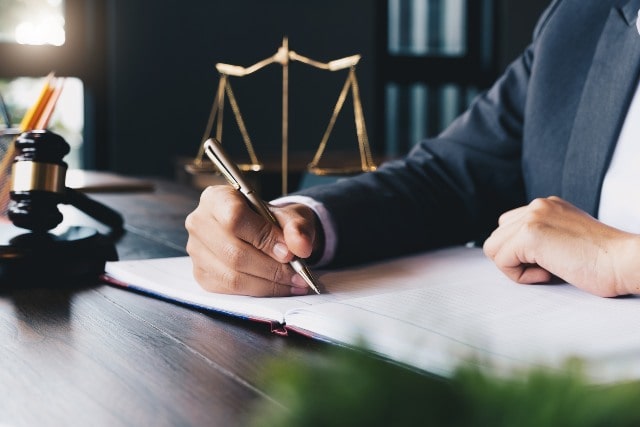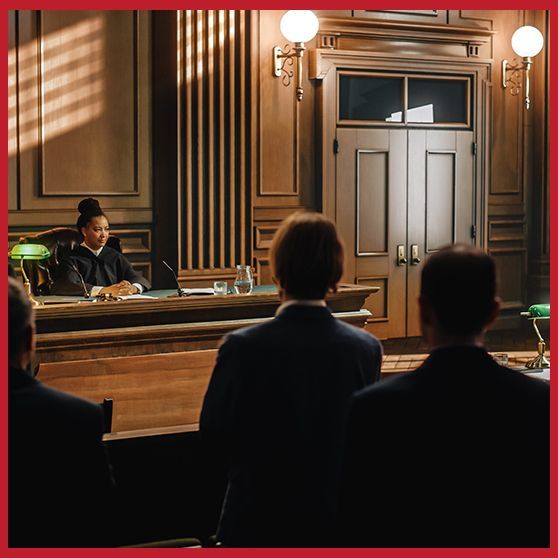Just How a Lawyer Can Assist With Your Habeas Corpus Request
Recognizing the Function of a Post-Conviction Lawyer in Looking For Justice After a Criminal Sentence
In the complicated landscape of post-conviction legal process, the role of a post-conviction lawyer is crucial in browsing the path to justice after a criminal conviction. Past the boundaries of a test, these attorneys engage in a multifaceted technique focused on discovering brand-new proof, challenging legal mistakes, and advocating for their clients' legal rights. The complexities of post-conviction work call for a mix of legal acumen, investigative skills, and calculated believing to unravel the complexities of a case and pursue avenues that might have been ignored or underexplored. As the search of justice expands beyond the boundaries of initial procedures, the duty of a post-conviction attorney arises as a beacon of wish for those looking for to rectify injustices and reclaim their civil liberties within the legal system.
Post-Conviction Lawyer's Investigative Work
Post-conviction legal representatives take part in meticulous investigative work to uncover brand-new proof, procedural mistakes, or transgression that might potentially result in overturning a conviction. This investigative phase is essential in the post-conviction process as it intends to identify any forgotten details or lawful bad moves that might have affected the end result of the preliminary test. Post-conviction attorneys look into instance documents, witness statements, and legal paperwork with a fine-tooth comb, searching for any discrepancies or irregularities that might be premises for allure.
With thorough examination, post-conviction legal representatives intend to drop light on potential oppressions that might have taken place during the initial test. They may carry out interviews, talk to specialists, and review forensic evidence to construct an engaging case for their clients. By inspecting every facet of the legal procedures, post-conviction attorneys work tirelessly to uncover any type of elements that may have influenced the judgment. Inevitably, their investigatory job plays a crucial role in the quest of justice and the potential reversal of wrongful convictions.
Crafting Appeals and Petitions
In the pursuit of justice after a sentence, proficient legal representatives diligently craft allures and requests to present compelling arguments for the reconsideration of legal decisions. Crafting charms and petitions calls for a deep understanding of the legal system, attention to detail, and tactical reasoning. Post-conviction legal representatives evaluate trial records, determine prospective mistakes or infractions of rights, and create legal disagreements to challenge the sentence or sentence.
When crafting a charm, legal representatives concentrate on highlighting lawful errors that might have influenced the outcome of the case. They research case law, laws, and legal precedents to sustain their debates. Petitions, on the other hand, may entail presenting brand-new proof that was not readily available during the test or demonstrating modifications in the legislation that require a testimonial of the sentence.
Furthermore, post-conviction lawyers need to comply with rigorous procedural rules and due dates when submitting charms and petitions. They should provide their arguments plainly and persuasively to convince the court to grant alleviation to their clients. Via careful crafting of charms and requests, post-conviction lawyers strive to protect justice for people who have been wrongfully founded guilty or unfairly punished.

Seeking Post-Conviction Alleviation
Post-conviction alleviation encompasses an array of lawful mechanisms developed to challenge the legitimacy of a conviction or sentence. Post-conviction additional resources lawyers play an important function in browsing these intricate procedures, making certain that all legal choices are discovered to remedy injustices that may have happened during the test or sentencing stage.
One typical form of post-conviction relief is filing a request for post-conviction relief, commonly based on cases of inefficient assistance of counsel, prosecutorial misconduct, freshly uncovered evidence, or constitutional offenses. Experienced post-conviction attorneys have the skills and knowledge essential to determine sensible legal insurance claims, conduct examinations, and existing engaging debates to protect alleviation for their customers.
Using Forensic Evidence
When testing a conviction or sentence, the tactical use of forensic proof can be an effective device in post-conviction legal process. Forensic proof encompasses a large range of scientific methods utilized to explore crimes and establish facts in court. Post-conviction legal representatives can leverage forensic proof to challenge the validity of convictions by providing brand-new scientific findings that were not offered throughout the original test.

Engaging in Sentence Modifications
Post-conviction attorneys might explore the possibility of sentence modifications as a lawful opportunity to resolve disproportionate or unfair sentences passed on in criminal cases. Sentence alterations entail looking for modifications to the terms of an offender's sentence after a sentence has actually occurred. These modifications can include minimizing the length of a sentence, changing the sort of punishment imposed, or discovering different sentencing choices.
Post-conviction attorneys can seek sentence modifications with various legal mechanisms, such as submitting motions for sentence reduction, appealing for thoughtful release, or discussing appeal deals for lowered sentences. They need to carefully evaluate the situations of the situation, assess the lawful premises for seeking an adjustment, and present compelling debates to the court supporting the requirement for a modified sentence.
Participating in sentence adjustments requires a comprehensive understanding of criminal legislation, sentencing guidelines, and the details treatments associated with looking for post-conviction relief. Post-conviction lawyers play a critical function in promoting for fair and simply outcomes by difficult sentences that are unduly extreme or do not straighten with the principles of justice.
Verdict
Finally, the function of a post-conviction legal representative is important in looking for justice after a criminal conviction. Through investigatory job, crafting charms and requests, seeking post-conviction relief, making use of forensic evidence, and involving in sentence modifications, these attorneys play a vital duty in promoting for their clients and making certain that their civil liberties are maintained within the criminal justice system. Their commitment and expertise are essential in browsing the complexities of post-conviction process and attaining a reasonable result for people facing criminal convictions.